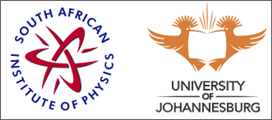Speaker
Abstract content <br> (Max 300 words)<br><a href="http://events.saip.org.za/getFile.py/access?resId=0&materialId=0&confId=34" target="_blank">Formatting &<br>Special chars</a>
In the majority of Active Galactic Nuclei (AGNs) that can be resolved with Very Long Baseline Interferometry (VLBI), the jet is brighter on one side and often shows curvature. However, there are many AGNs which are only marginally resolved, such as the low-luminosity AGN (LLAGN) in Galaxy M81, for which it is difficult to reliably extract the basic parameters of the jet such as its length, orientation and degree of bending. To extract jet parameters in such sources, we developed an asymmetric Fourier-plane model which is more appropriate than the typically used symmetric Gaussian models. This model is used to fit the VLBI data for the LLAGN in M81 directly in the u-v plane for our extensive high resolution data set (5.0GHz and 8.4GHz) over the period from 1993 to 2003. This Fourier Modeling technique allows us to dig out information at the resolution limit, providing a comprehensive picture of the structure and a systematic evolution of the jet coupled to changes in the overall flux density at the different frequencies.
Apply to be<br> considered for a student <br> award (Yes / No)?
Yes
Would you like to <br> submit a short paper <br> for the Conference <br> Proceedings (Yes / No)?
Yes
Level for award<br> (Hons, MSc, <br> PhD)?
MSc
Main supervisor (name and email)<br>and his / her institution
Prof Lerothodi L.Leeuw
leeuw@unisa.ac.za
University of South Africa (UNISA)

